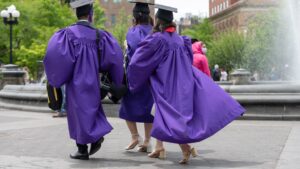The New Pathway to U.S. Citizenship: Trump’s Gold Card Visa for International Students
As the landscape of higher education in the United States continues to evolve, one recent proposal is stirring the pot — President Donald Trump’s suggested "Gold Card" visa program. This initiative could reshape opportunities for international students seeking to study in the U.S. and potentially gain permanent residency. Here at Extreme Investor Network, we delve deep into this proposal’s implications, providing insights that may benefit both prospective students and savvy investors alike.
Understanding the Gold Card Visa Proposal
The proposed Gold Card visa program aims to offer wealthy international students the chance to secure permanent residency in exchange for a substantial financial investment of $5 million. Although the specifics of this initiative remain ambiguous, it’s clear that it could open new doors for affluent students from countries like China, Korea, and India.
In the days following Trump’s announcement, Christopher Rim, a college consulting expert, noted a surge in inquiries from international students interested in how this new program could work for them. "We received an unusual influx of inquiries…because now these wealthy international students have a clear path to stay in the U.S. after graduation," said Rim.
From our vantage point at Extreme Investor Network, this also underscores a growing trend where colleges may increasingly target affluent overseas students as a means to bolster their financial stability.
The Financial Incentives for Universities
International students are more than just faces on campus; they represent a vital financial pillar for American universities. Institutions like New York University and Columbia University rely heavily on this revenue stream, as these students often pay full tuition without seeking financial aid. With more than 1.1 million international students in the U.S., their enrollment significantly contributes to the economy, injecting approximately $43.8 billion during the 2023-24 academic year.
Robert Franek, editor-in-chief of The Princeton Review, highlights the appeal of international students: "They are incredibly attractive to colleges because they aren’t applying for financial aid." As a result, any changes to visa policies that encourage more international students could directly enhance a university’s financial footing.
The Broader Implications on College Access
While the Gold Card visa may present new opportunities for wealthy students, it raises important questions about accessibility in higher education. James Lewis, co-founder of the National Society of High School Scholars, emphasizes that while affluent families may take advantage of this program, the long-term effects on college access could be detrimental. "We certainly want to make college accessible for everyone," he states.
This concern is amplified by the alarming rise in college costs, which continues to outpace average income growth. According to the College Board, tuition and fees plus room and board for private institutions averaged $58,600 for the 2024-25 school year, a significant increase from $56,390 the previous year.
For families relying on financial aid, particularly those from low-income or minority backgrounds, these cost increases and shifts in enrollment policies could mean that quality higher education feels even more out of reach.
Conclusion: What This Means for Future Investors
As we look at the proposed Gold Card visa and the increasing costs of higher education, investors have an opportunity to engage with a transformational moment in this sector. Educational institutions may need to adapt quickly, perhaps leaning more heavily on international student enrollment strategies.
The potential influx of wealthy international students might not only stabilize the financial foundations of these institutions but could also open doors for innovative investment opportunities as colleges strive to attract and retain these lucrative demographics.
At Extreme Investor Network, we will continue to monitor these developments closely. We believe that understanding the implications of such policies, as well as the economic currents they create, will empower investors and future students alike to navigate the evolving educational landscape with confidence. Keep following us for updates, analysis, and strategies designed to help you make informed financial decisions in this ever-changing environment.

